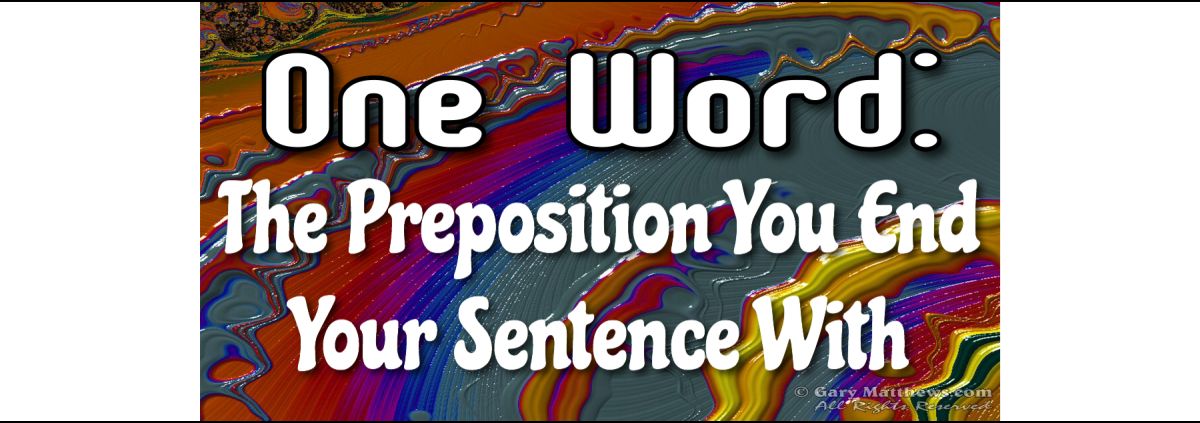There’s this idea that it’s wrong to end a sentence with a preposition.
It won’t die. But it’s mistaken – the idea, I mean, not the preposition.
A preposition is a perfectly good thing to end a sentence with.
The notion that one can’t do this is often put forward as a “rule” of English grammar. It’s sometimes taught in school, even by language professors who should know better.
It simply ain’t so!
Prepositions are words like to, “of”, “by”, “for”, “under”, “about”, and so forth. A preposition takes an object. In the expression “government of the people, by the people, and for the people” – “people” is the recurring object of the prepositions “of”, “by”, and “for”.
Let’s not complicate this by talking about modifiers or prepositional clauses and stuff. The point is, it’s perfectly correct – in English – to say things like:
✔ “Who should I take this to?”
✔ “What’s this all about?”
✔ “It’s you I’m dreaming of.”
In most contexts, we couldn’t improve these sentences by saying “To whom should I take this?” “About what is all of this?” or “It’s you of whom I’m dreaming.” Certainly we’d get funny looks if we used such awkward constructions in relaxed conversation.
Winston Churchill is often quoted as saying (sarcastically) that this no-preposition-at-the-end-of-a-sentence nonsense is something “up with which I will not put”.
Churchill almost certainly isn’t the source of that quip. But the quip itself makes a good point, no matter who actually said it.
There are languages in which, for structural reasons, it’s grammatically wrong to end a sentence with a preposition. English is not one of them. So give yourself permission to say whatever sounds most natural in the context.
(This article is part of my series on words that are #worth1000pictures.)


5 responses to “One Word: The Preposition You End Your Sentence With”
Three cardinal rules of grammar!
1. Never use a preposition to end a sentence with.
2. Never to split an infinitive
3. And, never start a sentence with a conjunctive!
Great points all, John, except for the typo in your rule #2. Isn’t the intended and correct wording “To never split an infinitive”?
That said — busted! By which I mean, you’ve outed me, ahead of schedule: This is the first of a three-post series on those very “rules”.
Might we also extend the “rules” list as follows: “4. Sentence fragments; 5. Objects without verbs; 6. Verbing it with nouns”?
And, to never be afraid to be disagreed with.
Amen to that, brother!
Hello,
Could you please help me with a book of descriptive grammar rules? I need to have information about people in favor of using it.